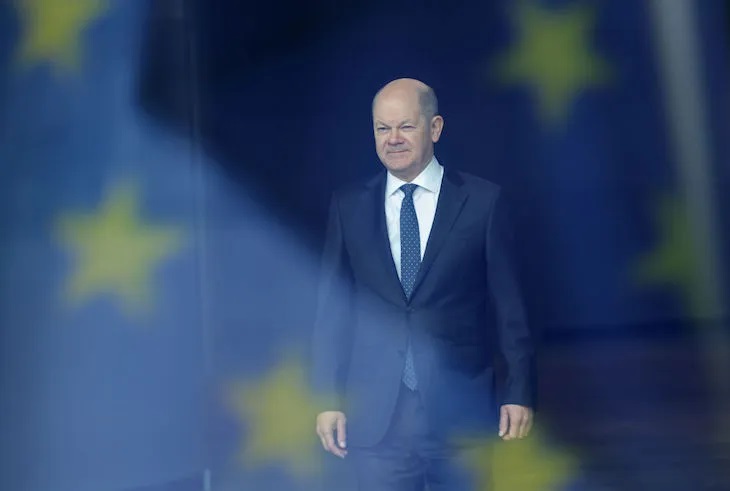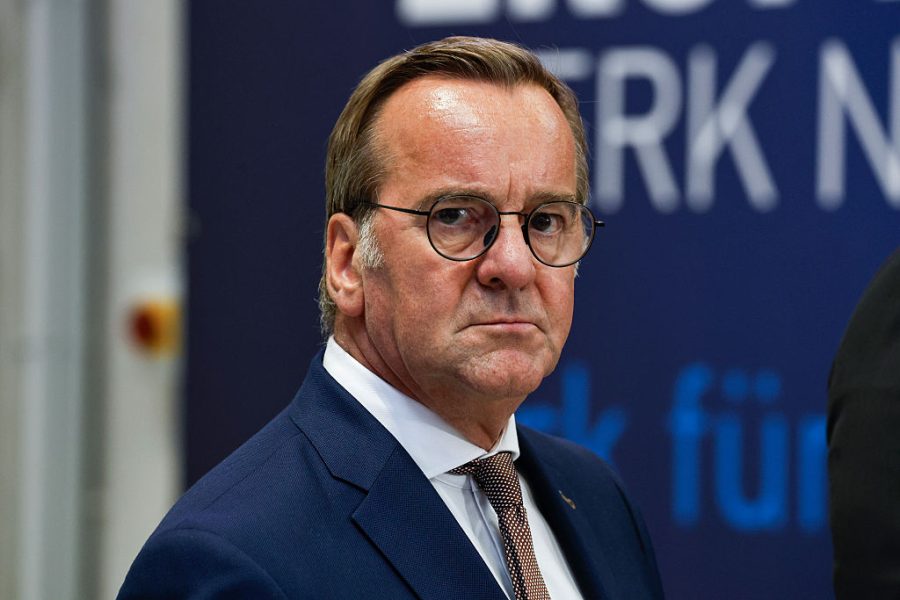Germany was once the powerhouse of Europe; for decades, its economy has helped drive the continent’s growth. No longer. Berlin’s economy ministry plans to downgrade its growth forecast for this year. The German government now expects the economy to shrink by 0.2 percent in 2024 — down from a previous estimate of 0.3 percent growth, Sueddeutsche Zeitung reports.
Is this the medicine the German economy needs to get it back on to its feet?
Germany appears to be on the brink of a second year in a row in which its economy is going in the wrong direction. German output contracted 0.3 percent last year and the country’s economy — weighed down by inflation and high energy costs — was among the weakest performers in the world.
For now, many Germans are weathering the storm; thanks to its overall strength, the gloomy outlook for the economy has yet to affect the population’s wealth significantly. But how long can that continue if the economy continues to lag behind its European competitors? The federal government in Berlin is under increasing pressure to steer a turnaround, particularly with the elections scheduled for September 2025.
Robert Habeck of the Green Party, who leads the country’s economy ministry, is trying to look on the bright side. Habeck said the economy could see “significantly stronger growth” over the next two years. His ministry plans to issue a forecast tomorrow for 2025 economic growth of 1.1 percent, up from the 1 percent forecast previously; he is also expected to say that Germany is aiming for 1.6 percent growth in 2026. To achieve these aims and fire growth, Habeck is pinning his hopes on a legislative package which includes tax reliefs, the reduction of energy prices for industry, a decrease in bureaucracy, incentives to older people to continue working and more attractive conditions for foreign skilled workers. But is this the medicine the German economy needs to get it back on to its feet?
As the general industrial slowdown and soaring energy prices caused by Russia’s invasion of Ukraine continue to weigh over Germany, not all Germans are convinced by the more optimistic assessments for 2025 and 2026 — nor do they think legislation is the answer to the economic woes. Even though the average income of Germans is rising faster than the inflation rate, the general feeling is rather pessimistic because few believe that the trend may continue. “Many reckon that the company they are working for will be worse off (in the future),” Clemens Fuest, president of the Ifo Institute for Economic Research, recently said.
While an economical downslide might be seen as temporary, there is an expectation that Germany may have to deal with the effects of structural challenges in the foreseeable future. “Decarbonization, digitization, demographic changes and likely tougher competition with companies from China have caused structural adjustment processes which dampen the growth outlook of the German economy,” Geraldine Dany-Knedlik from the German Institute for Economic Research said.
Habeck, however, is standing firm; he has insisted that German growth could be “significantly stronger” if all the measures set up in the package are actually implemented on time. “Now is not the time for doubts — now is the time to act fast,” he said while also appealing to governments of Germany’s federal states, “especially those with governments involving the Christian Democratic Union and Christian Social Union.”
Habeck’s call towards the two conservative parties who are currently in the opposition in the German Bundestag speaks for itself. The Green representative, who belongs to the pragmatists within his party, hopes that he can convince opposing state governments of his ideas under the light of an ongoing shrinking of the entire economy. But whether he will be able to do so remains doubtful.
The truth is that the plans to decrease bureaucracy remain vague and most of the legislative initiatives may need years to show their full effects, if they are to cure Germany’s economic woes.
This article was originally published on The Spectator’s UK website.

























